|

|
The Progress Principle:
…if extrinsic motivators are extremely strong and salient, they can undermine intrinsic motivation; when this happens, creativity can suffer.
|
035 |
|
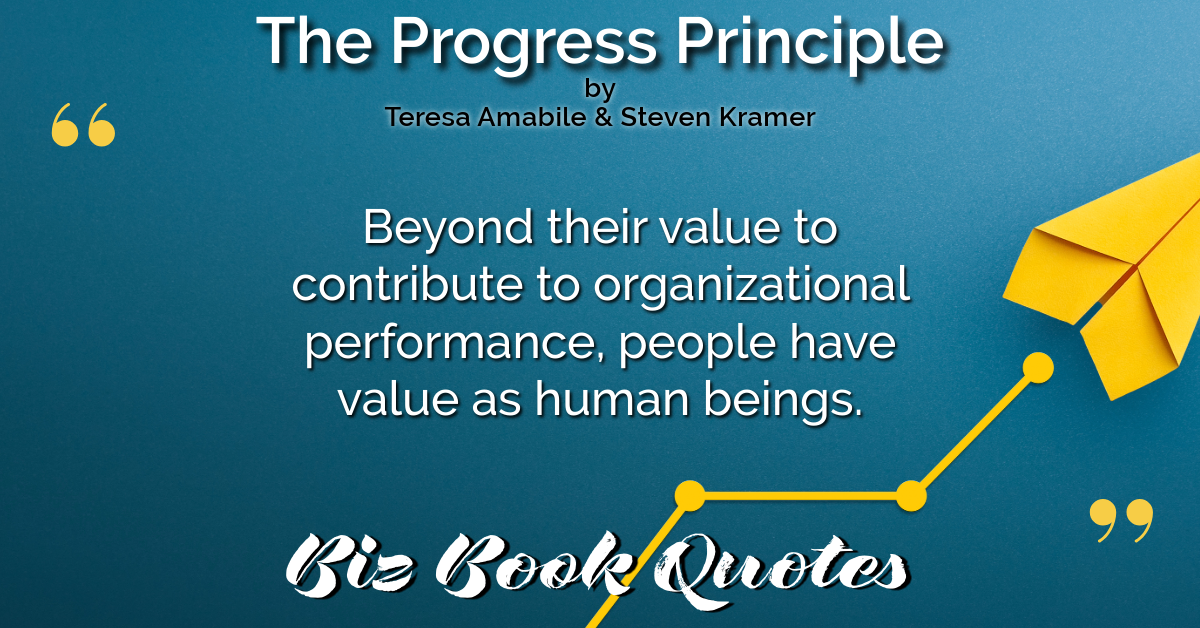
|
The Progress Principle:
Beyond their value to contribute to organizational performance, people have value as human beings.
|
041 |
|
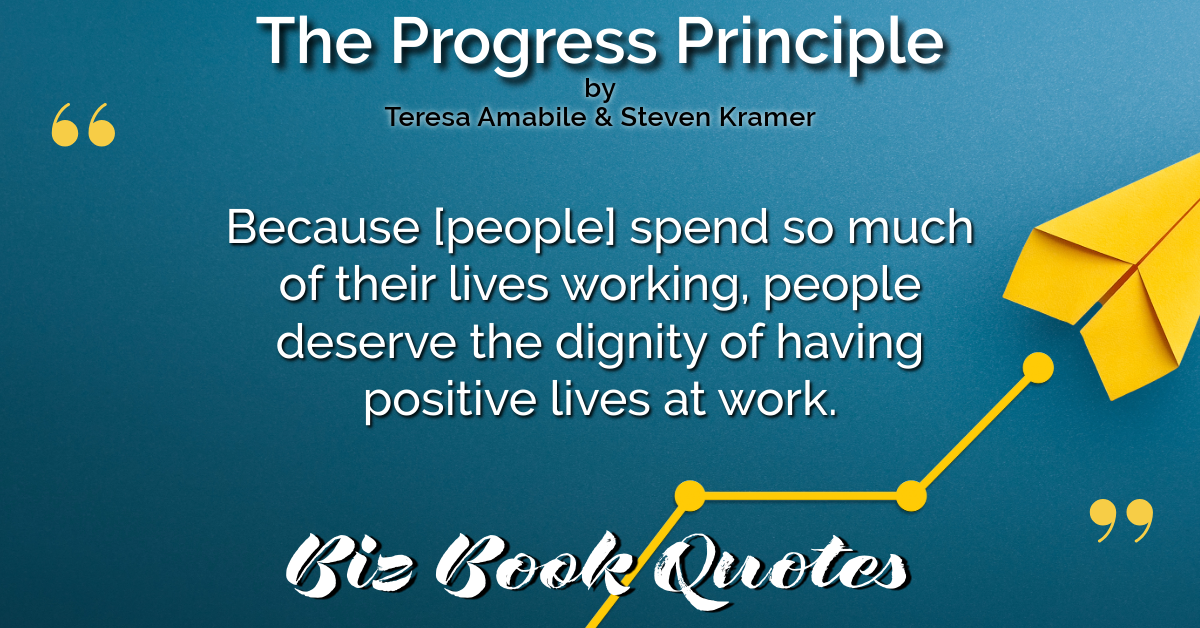
|
The Progress Principle:
Because [people] spend so much of their lives working, people deserve the dignity of having positive lives at work.
|
041 |
|
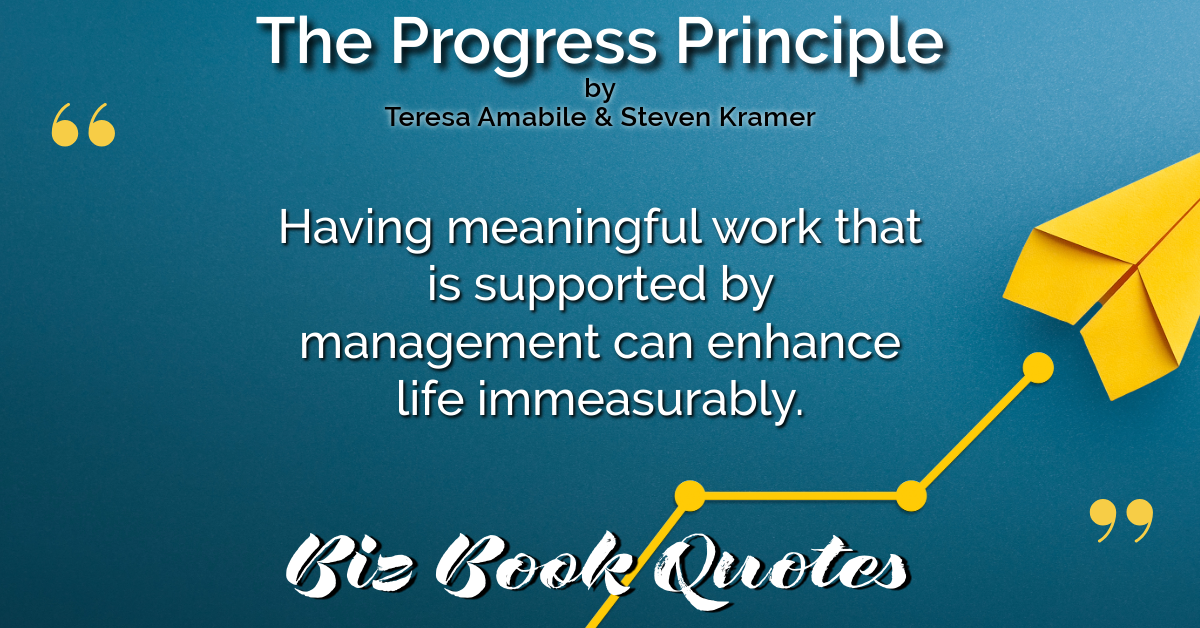
|
The Progress Principle:
Having meaningful work that is supported by management can enhance life immeasurably.
|
041 |
|
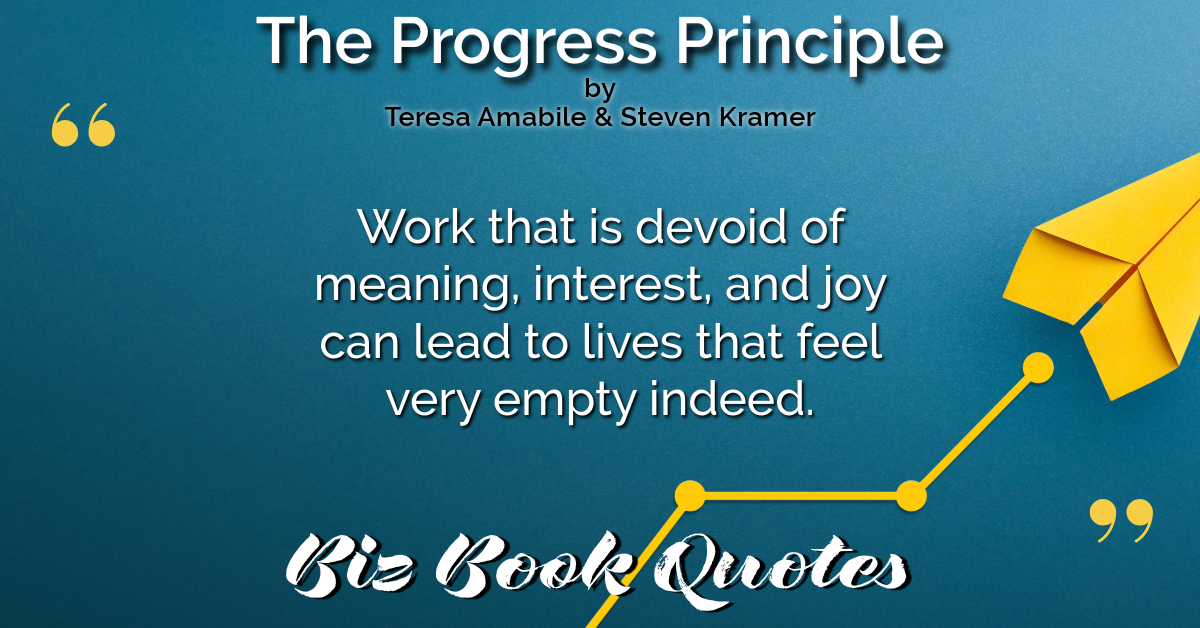
|
The Progress Principle:
Work that is devoid of meaning, interest, and joy can lead to lives that feel very empty indeed.
|
041 |
|
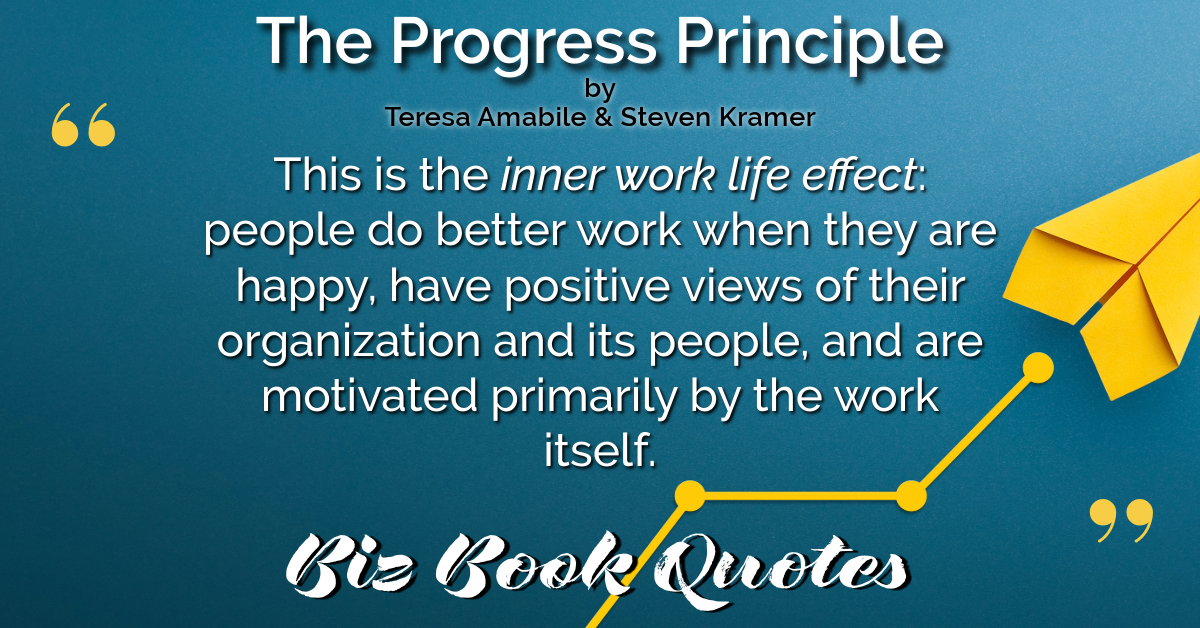
|
The Progress Principle:
This is the inner work life effect: people do better work when they are happy, have positive views of their organization and its people, and are motivated primarily by the work itself.
|
047 |
|

|
The Progress Principle:
…managers who say – or secretly believe – that employees work better under pressure, uncertainty, unhappiness, or fear are just plain wrong.
|
058 |
|

|
The Progress Principle:
When jobs have been robbed of personal meaning, the intention to work hard evaporates.
|
062 |
|
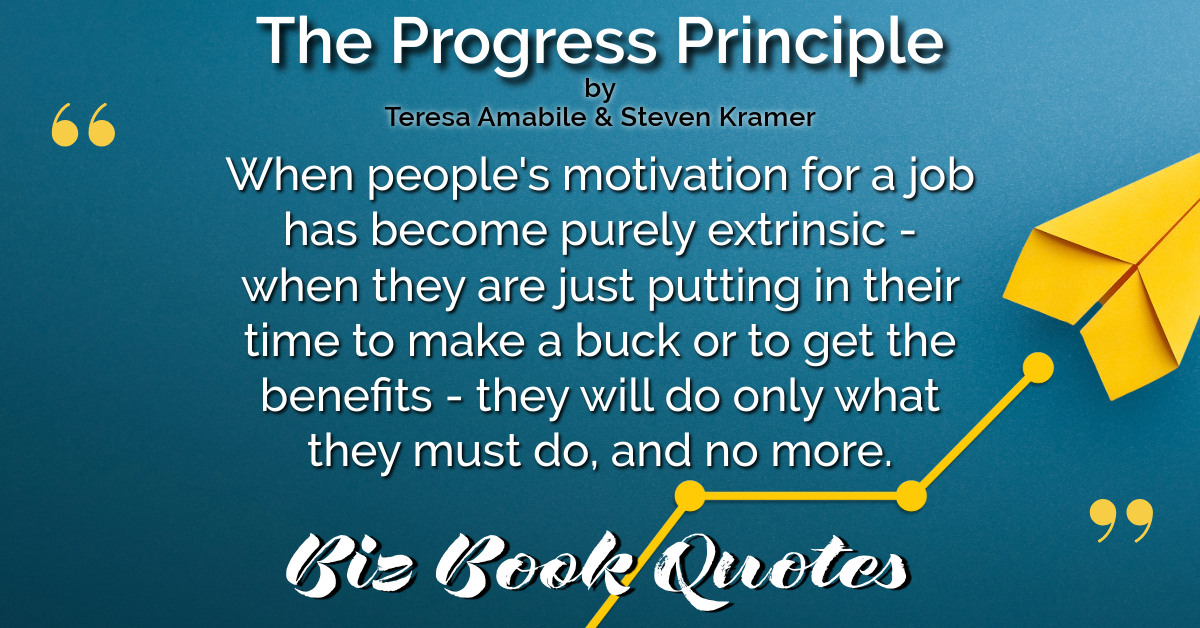
|
The Progress Principle:
When people’s motivation for a job has become purely extrinsic – when they are just putting in their time to make a buck or to get the benefits – they will do only what they must do, and no more.
|
062 |
|

|
The Progress Principle:
…placing people under extreme stress, especially for long periods of time, is more likely to produce coal than diamonds.
|
065 |











